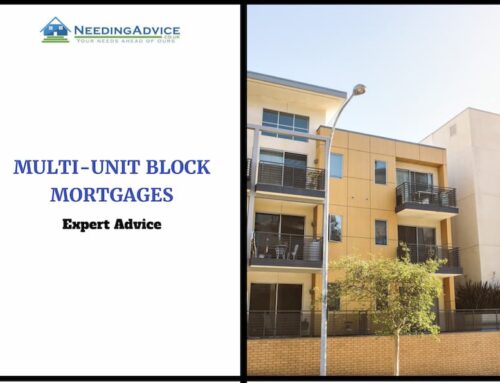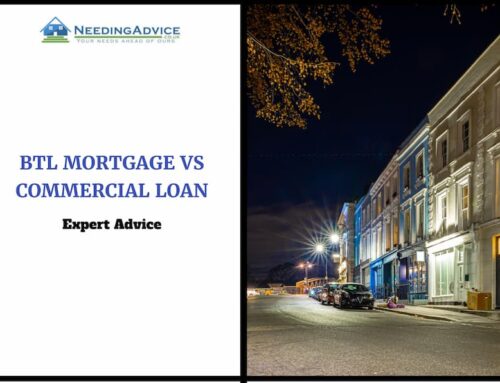Getting a mortgage approved in a high flood-risk area is a complicated process and you need to be well-prepared before starting your mortgage application. In this article on Mortgage on a house in a High Flood Risk Zone, we will look at the risks involved with buying a home in a flood zone and how these can impact your mortgage approval.
We will answer the most asked questions such as can I get a mortgage on a property in a high flood zone, is it a bad idea to buy a house in a flood zone, can a mortgage be rejected because of high flood risk etc.
The Environment Agency also known as (EA) have shared that about 5.2 million homes and businesses across England are at risk of flooding. Cover for flooding is becoming more and more necessary as time goes on due to the worsening effects of climate change.
What does this mean for homeowners who live near water?
In the last year alone, the cost of flood insurance has risen by almost 20%. This means that even though some properties are protected by building regulations, they may still face significant financial risks.
Flooding is a serious issue in the UK and is growing. If you live near water in a flood-risk property you should consider buying flood insurance.
Mortgages On Properties Within A Flood Zone
There are four different flood zones you can be within. Whether your house is near the sea, lake or a river, or in an area with heavy rainfall/extreme weather. It can be categorised by a flood zone which will decipher the risk of flood.
Zone 1
Low risk flood areas (less than 0.1% chance of flooding each year.)
Zone 2
Slightly higher risk of flooding areas (0.1% – 1% likelihood of flooding each year.) A 1% chance flood is known as a 100-year flood.
Zone 3a
A high-risk area (more than 1% chance of flooding each year.)
Zone 3b
An area with the highest flood risk (more than 5% chance of flooding each year)
You can check which flood zone you are within using the government online tool.
For more details on your property’s zone, contact the Environmental Agency.
Environment Agency
PO Box 544
Rotherham
S60 1BY
Email enquiries@environment-agency.gov.uk
Monday to Friday, 8 am to 6 pm 0370 8506 506
From outside the UK +44 1709 389 201.
Why should I have Flood Insurance?
Flood Insurance itself isn’t a legal requirement, however, it is heavily recommended for homeowners (even in lower-risk zones). Regular building insuranceInsurance that covers damage to the structure of a property.... – which is required by lenders – usually covers flooding (the damage to the building itself). If you want your home contents to be covered, you need contents insuranceInsurance that covers damage to the contents of a property., this will increase your chances of mortgage approval.
Lenders are constantly analysing risk to ensure they don’t lose lots of money in the case of an emergency. Purchasing flood cover greatly increases the chances of getting accepted for a mortgage application.
Cover for flooding should also provide peace of mind as the future flood risk increases due to the impact of climate change.
Is Flood Damage Insurance Expensive?
The average cost of repairing a flooded home in the UK is £4,000. This includes replacing damaged walls, floorboards, carpets, furniture, appliances, fixtures, fittings, and other items. If the flood damage is extensive, then the cost could be higher. When a building is fully flooded, repairs to the structure can be in the hundreds of thousands.
The average combined home and contents insurance premium cost £140 a year in 2021, according to the source – That’s about £2.70 a week. This includes flood cover.
Flood Risk Report
When lenders are curating a flood report in terms of the risk they may look at different aspects such as:
- history of flooding – the area’s historic flooding and previous flooding
- flood resilience measures/flood defences
- flood maps/flood risk map
- flood modelling
- chances of potential groundwater flooding
Flood Re
If you’ve been affected by recent flooding, help may be at hand from the Flood Re. It’s an insurance company that helps people who are unable to afford insurance coverage for flooding because of the recent floods.
Can I apply for Flood Re?
Not everyone can apply to flood re – there are some requirements in place that must be met before you can apply. If you meet all these requirements, then you can apply.
- Your property was built before 1st January 2009
- The insurance holder lives in the property
- It’s in council tax bands A-H
What Does Flood Insurance Cover?
Building coverage protects:
- Electrical and plumbing systems
- Furnaces and water heaters
- Refrigerators, cooking stoves, and built-in appliances like dishwashers
- Permanently installed carpeting
- Permanently installed cabinets, panelling, and bookcases
- Window blinds
- Foundation walls, anchorage systems, and staircases.
- Detached garages
- Fuel tanks, well water tanks and pumps, and solar energy equipment
Contents coverage protects:
- Personal belongings such as clothing, furniture, and electronic equipment
- Curtains
- Washer and dryer
- Portable and window air conditioners
- Microwave oven
- Carpets not included in building coverage (e.g., carpet installed over wood floors)
- Valuable items such as original artwork and furs
What Doesn’t Flood Insurance Cover?
According to FEMA, there are some items that aren’t covered by flood insurance. If you’re concerned about the cost of replacement for these items, you may want to consider purchasing additional personal property or content coverage.
- Temporary housing and additional living expenses incurred while the building is being repaired or is unable to be occupied
- Property outside of an insured building. For example, landscaping, wells, septic systems, decks and patios, fences, seawalls, hot tubs, and swimming pools
- Financial losses caused by business interruption
- Currency, precious metals, stock certificates and other valuable papers
- Cars and most self-propelled vehicles, including their parts
- Personal property kept in basements
Finding The Right Mortgage
Some Mortgage Lenders are reluctant to lend to high-risk Flood areas but the right insurance can make lenders become much more lenient. It’s important that you get the best flood insurance policy possible for your situation. Contact our expert team for mortgage advice.
FAQs- Mortgage on Property in High-Risk Flood Zone
Can I get a mortgage on a property in a high-risk flood zone?
Yes, you can get a mortgage on a property in a high-risk flood zone. However, the process of getting such mortgage is complicated, so you may need to contact an expert mortgage broker to help you with your application.
Is it a bad idea to buy a house in a flood zone?
No, buying a home in a flood zone is not a bad idea. In fact, many people have bought homes in high-risk flood zones without any problems. The main reason why this happens is that they have taken out flood insurance.
What if the region of property I am interested in has a history of flooding?
If you are interested in buying a property in a high-risk flood zone, you may need to submit a flood report from local authorities. This will tell you whether the area has had floods in the past. You should also check whether the area is prone to future flooding.
How do I find out if my area is considered a high-risk flood area?
You can check if your area is considered a high-risk flood area using the flood map.
Do I need flood insurance when buying a house in a high-risk area?
Flood insurance is required when buying a house in any part of the country. However, flood insurance is only required when buying a house that is located in a high-risk zone.







Leave A Comment